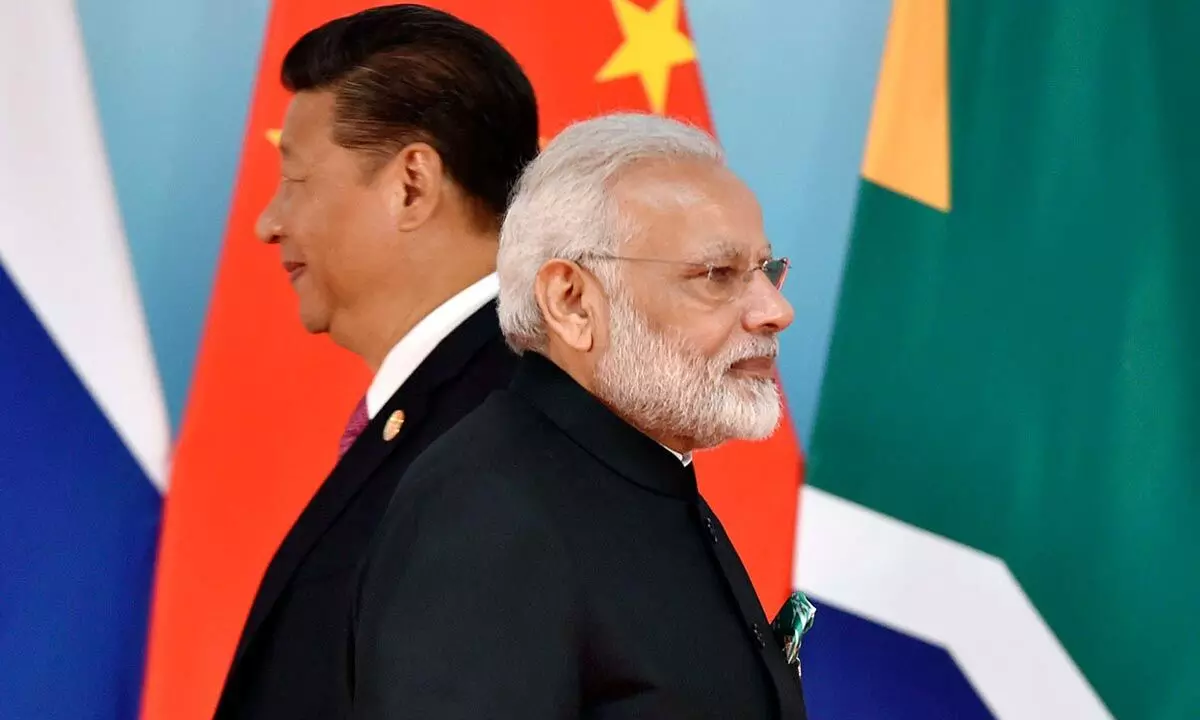India’s strategic role can quell Chinese influence in the Middle East
Skeptics believe that influencers may be short on expertise and qualifications on certain issues
image for illustrative purpose

India must siege the positive atmosphere to build bridges of sustainable peace and security in the region. The strategic partnership and sustained soft power diplomacy with Iran, Saudi Arabia (GCC states) and Israel can be a new formidable alliance for multilateralism and equitable world order. The Middle East is a critical source of Indian energy imports and infrastructure assistance and a key supplier of water-saving agricultural technologies.
The Middle East is an important strategic region for India given its profound geopolitical and geo-economic significance. Both share deep civilizational contacts, cultural exchange and historical linkages, including a colonial past and struggle for achieving independence.
After 1991, the relations between India and the Gulf region started taking shape, which has solidified over the past two decades. Since then, India and the Gulf states have relished close economic and trade relations. There is now increased cooperation between the Gulf countries and the Indian subcontinent in several areas, including trade, energy supplies, maritime security, and sharing of defence and military knowledge and technology through numerous joint military exercises.
China’s growing influence in the Middle East has prompted India to aggressively seek a greater strategic role for itself in the region along with Saudi Arabia, UAE and the US. India along with the US, Israel and the UAE are also part of the I2U2 initiative that began in 2022, which came to be known as the ‘Middle East Quad’. However, the I2U2 is purely focused on business and trade within these four countries while the new initiative, which has yet not been granted an official nomenclature, will shape up to be more of a strategic or military alliance.
The geopolitics of energy security makes the region, particularly the Gulf crucial for India’s geo-economics, and pursuit of economic development. India is already 3rd largest consumer of oil and largely dependent on the supply from the region. Thus, the stability of the region for assured energy supply determines the priority of Indian policy towards the region.
The major oil companies of the region- ARAMCO and ADNOC are deepening their engagement with Indian companies both public and private. ARAMCO and Reliance Industries are developing strategic partnership and an investment by the former in West Coast Refinery and Petrochemical Project in Maharashtra. ONGC has also engaged and participated in oil extraction, refinery and technical support creating stronger economic inter-dependence. According to sources, the initiative was driven jointly by the Saudis and the Americans in an effort to create a “robust front” against Iran even though Riyadh and Tehran have arrived at an “understanding” of sorts brokered by Beijing.
According to a statement issued by Riyadh, the meeting was aimed at discussing ways to strengthen relations between the participating countries to “enhance growth and stability” in the region.
The White House said the meeting was conducted to “advance their shared vision of a more secure and prosperous Middle East region interconnected with India and the world.”
Iran is a key factor in India’s Chabahar port project, which is a crucial chain and strategic point in India’s Afghan policy and beyond in Central Asian countries. India can help mitigate sanctions and ease the US ‘maximum pressure’ strategy by using its leverage with the US, Saudi Arabia and Israel.
India must siege the positive atmosphere to build bridges of sustainable peace and security in the region. The strategic partnership and sustained soft power diplomacy with Iran, Saudi Arabia (GCC states) and Israel can be a new formidable alliance for multilateralism and equitable world order.
The Middle East is a critical source of Indian energy imports and infrastructure assistance and a key supplier of water-saving agricultural technologies. The Persian Gulf region hosts more than eight million Indian workers, many of whom send back remittances. And unlike many western partners, leaders from the Middle East don’t criticize New Delhi over its domestic policies. With an occasional exception, Middle East countries have even steered clear of mentioning India’s increasing violence against Muslims as well as anti-Islam derogatory hate-speeches.
In the Middle East, India has trade partners as well as close friends such as Israel. Apart from Egypt’s long-standing formal relationship with Israel, one has seen normalized ties between Israel and four other Arab states through the 2020 Abraham Accord.
The Middle East gives India opportunities to showcase its diplomatic clout and commitment to multi-lateralism in areas beyond Asia, particularly as it looks to use its G-20 presidency to serve as a bridge between rich economies and developing states.
The United States and China are frequently brought up when discussing great powers in the Middle East; however, India also plays a role in the geopolitical dynamics within the region. With its long-standing linkages in economics, culture, and religion, India has long had a significant presence in the area. But as New Delhi has been interacting on political, diplomatic and security fronts lately, this has assumed a more strategic tone.

